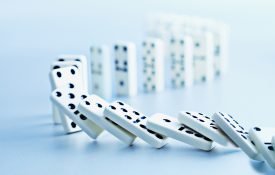-
Inside the Psychologist’s Studio: Jerome Bruner
Legendary psychological scientist Jerome S. Bruner, who made groundbreaking contributions to cognitive psychology and the science of perception, died in June 2016 at the age of 100. The APS Williams James Fellow reflected on his life and career in a March 2013 interview with historian Robin Cautin.
-

Far From Being Harmless, the Effects of Bullying Last Long Into Adulthood
Serious illness, struggling to hold down a regular job, and poor social relationships are just some of the adverse outcomes in adulthood faced by those exposed to bullying in childhood.
-
Giving Preschoolers Choice Increases Sharing Behavior
Getting kids to share their toys is a never-ending battle, and compelling them to do so never seems to help. New research suggests that allowing children to make a choice to sacrifice their own toys in order to share with someone else makes them share more in the future. The new findings are published in Psychological Science, a journal of the Association for Psychological Science. These experiments, conducted by psychological scientists Nadia Chernyak and Tamar Kushnir of Cornell University, suggest that sharing when given a difficult choice leads children to see themselves in a new, more beneficent light.
-
New Research From Clinical Psychological Science
Read about the latest research published in Clinical Psychological Science: Dorthe Berntsen and David C. Rubin The prevalent view of posttraumatic stress disorder suggests that people have trouble voluntarily recalling autobiographical memories of traumatic events but frequently recall these memories involuntarily. Participants were asked to think about an important event from the past week and rate the memory's valence and the intensity of the emotion they felt when remembering it. Participants also indicated how often they had voluntarily or involuntarily remembered the event.
-
Intelligence Means Having More Than Just Raw Brainpower
Business Insider: These situational factors exert their influence in so many ways, but today, inspired by a recent research finding, I want to focus on one in particular: how a mastery of situation can actually make us smarter as we get older. In the current issue of the journal Psychological Science, researchers report that older people (over 65) showedless variability in their cognitive performance across 100 days of testing than did younger people aged 20 to 31. Why?
-
Summer fun can build kids’ brains
The Washington Post: Summertime is fun time, when kids can make and sell lemonade, read for fun, catch and release fireflies at twilight, and daydream. These last few weeks of the best time of the year can provide your child with rich opportunities to grow their brains while enjoying the traditional pastimes of the season.

